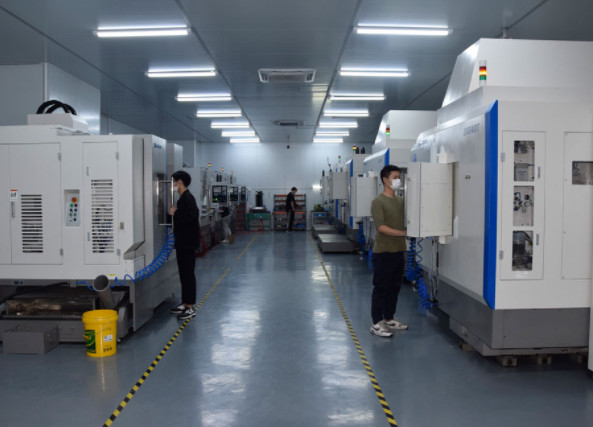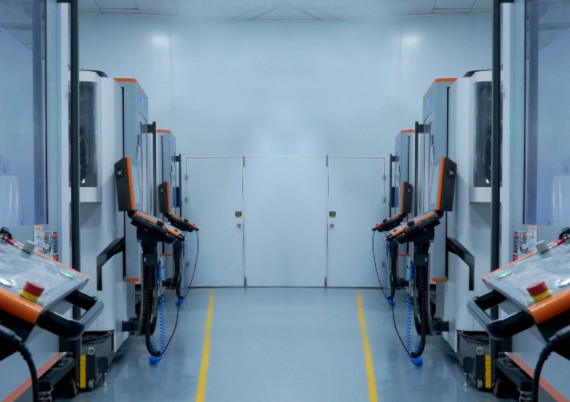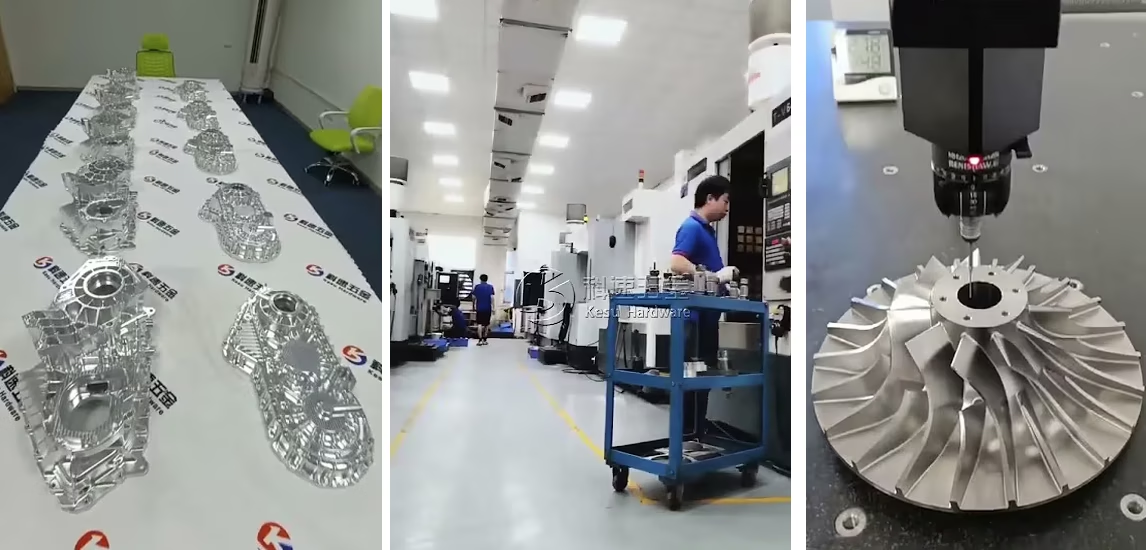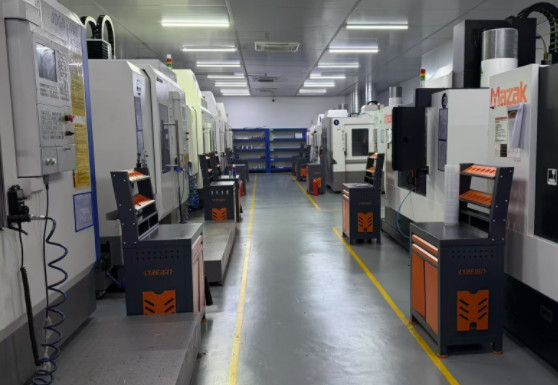Computer Numerical Control (CNC) machining is a critical manufacturing process used across industries like aerospace, automotive, and medical to produce high-precision parts. For businesses and individuals seeking CNC services, partnering with nearby CNC shops offers unique benefits but also comes with challenges. This guide provides a detailed examination of the advantages and disadvantages of local CNC shops and offers systematic methods to locate reliable providers. The content is structured to deliver technical insights, practical advice, and professional considerations for decision-making.
Advantages of Local Nearby CNC Shops
Choosing a local CNC shop can streamline manufacturing processes and improve project outcomes. Below are the key advantages of working with nearby CNC providers, supported by technical details and practical implications.
Faster Turnaround Times
Proximity reduces shipping times, enabling quicker delivery of machined parts. For urgent projects, local shops can often complete orders within days or even hours if they have readily available materials. For example, a local CNC shop within a 50-mile radius can deliver parts in 1-2 days compared to 5-7 days for distant suppliers. This is particularly valuable for prototypes or time-sensitive production runs.
Lower Shipping Costs
Shipping costs are significantly reduced when working with local CNC shop. For large or heavy parts, such as steel components weighing over 50 pounds, long-distance shipping can cost hundreds of dollars. Local delivery, often handled by courier or direct pickup, can cut these costs by 50-80%. Additionally, reduced shipping minimizes the risk of damage during transit.
Enhanced Communication and Collaboration
Face-to-face interactions or quick phone calls with local CNC shop facilitate clearer communication. This is critical for complex projects requiring tight tolerances, such as ±0.001 inches for aerospace components. In-person visits allow for real-time feedback, design reviews, and immediate resolution of issues, reducing the likelihood of misinterpretations common in remote collaborations.
Support for Local Economy
Partnering with local nearby CNC shops contributes to the local economy by supporting small businesses and creating jobs. Many local shops are certified to standards like ISO 9001, ensuring high-quality output while fostering community relationships. This can also lead to long-term partnerships with mutual benefits, such as priority service for repeat customers.
Easier Quality Control and Inspections
Local CNC shop allow for on-site inspections during or after production. For high-precision parts, such as medical implants requiring tolerances of ±0.005 inches, visiting the facility to verify machining processes or review quality documentation ensures compliance with specifications. This hands-on approach is more feasible with nearby providers than with distant ones.

Disadvantages of Local Nearby CNC Shops
While local CNC shops offer significant benefits, there are limitations to consider. Understanding these drawbacks helps in making informed decisions and mitigating potential issues.
Limited Equipment and Capabilities
Smaller local shops may lack advanced equipment, such as 5-axis CNC machines, which are essential for complex geometries. For instance, parts with intricate contours or multi-angle features may require 5-axis milling, which achieves tolerances as tight as ±0.0005 inches. If the shop only has 3-axis machines, you may need to outsource to a larger, potentially non-local facility.
Higher Costs for Small Volumes
Local shops often charge higher rates for low-volume orders due to setup costs. For example, a single prototype part may cost $200-$500 locally, compared to $100-$300 from overseas suppliers. Setup costs, including programming and tool calibration, are spread across fewer units, increasing per-part expenses. For high-volume runs (e.g., 1000+ units), local shops may become more competitive.
Dependence on Local Expertise
The quality of output depends heavily on the shop’s operators and programmers. While many local shops employ skilled machinists, some may lack expertise in specialized materials like titanium or composites, which require specific tooling and cutting parameters. For example, machining titanium requires low cutting speeds (50-100 SFM) and high-pressure coolant to prevent tool wear, which not all shops can handle effectively.
Capacity Constraints
Local shops, especially smaller ones, may have limited production capacity. During peak demand, they may prioritize larger clients, delaying smaller orders. For instance, a shop with five CNC machines may struggle to handle simultaneous orders for 500 parts each, leading to extended lead times of 2-4 weeks instead of the standard 1-2 weeks.
How to Find Reliable Nearby CNC Shops
Finding a trustworthy local CNC shop requires a systematic approach to evaluate capabilities, reliability, and alignment with project needs. Below are proven methods to locate and assess local CNC providers, along with technical considerations.
Leverage Online Directories and Platforms
Online directories like ThomasNet, MFG.com, and Yelp list nearby CNC shops by location, capabilities, and certifications. Filter searches by parameters such as machine types (e.g., 3-axis, 4-axis, 5-axis), materials (e.g., aluminum, stainless steel), and certifications (e.g., ISO 9001, AS9100). For example, ThomasNet allows sorting by shops within a 100-mile radius, ensuring proximity. Always verify listed details by visiting the shop’s website or contacting them directly.
Seek Referrals and Industry Networks
Referrals from colleagues, industry associations, or trade groups are valuable for identifying reputable shops. Local chapters of organizations like the National Tooling and Machining Association (NTMA) often connect members with trusted providers. For instance, attending a regional manufacturing expo can yield direct recommendations from peers who have worked with local shops on similar projects.
Evaluate Shop Capabilities and Certifications
Assess the shop’s equipment, workforce, and quality standards. Key questions include:
- What types of CNC machines are available (e.g., mills, lathes, routers)?
- Can they handle your material (e.g., plastics, metals, composites)?
- What are their precision capabilities (e.g., tolerances of ±0.001 inches)?
- Do they hold relevant certifications (e.g., ISO 9001 for general quality, AS9100 for aerospace)?
Request a facility tour to observe machines in action and review quality control processes, such as coordinate measuring machine (CMM) inspections.
Request Quotes and Compare Pricing
Obtain quotes from multiple shops to compare costs, lead times, and services. Provide detailed specifications, including CAD files, material requirements, and tolerances. For example, a part requiring 6061 aluminum with a ±0.002-inch tolerance and anodized finish should include these details. Compare quotes based on:
| Фактор | Описание |
|---|---|
| Total Cost | Includes setup, machining, and finishing costs |
| Время выполнения | Time from order placement to delivery |
| Additional Services | E.g., post-processing, assembly, or packaging |
Be cautious of unusually low quotes, which may indicate compromises in quality or hidden fees.
Visit the Facility and Review Past Work
A site visit provides insight into the shop’s operations, cleanliness, and organization. Request samples of past projects similar to yours, such as parts for automotive or medical applications. Check for surface finish quality, dimensional accuracy, and adherence to specifications. Discuss turnaround times for past orders to gauge reliability. For example, a shop that consistently delivers 100 parts in 10 days is likely more dependable than one with variable lead times.

Key Considerations for Selecting a CNC Shop
Beyond advantages and disadvantages, several factors influence the decision to partner with a local CNC shop. These considerations ensure alignment with project goals and long-term success.
Совместимость материалов
Confirm the shop can machine your required materials. Common materials include:
| Материал | Типовые применения | Machining Considerations |
|---|---|---|
| Алюминий | Aerospace, automotive | High machinability, requires sharp tools |
| Нержавеющая сталь | Medical, marine | Harder to machine, needs robust tools |
| Пластмассы | Electronics, prototypes | Prone to melting, requires low heat |
Specialized materials like Inconel or carbon fiber may require advanced expertise, which not all local CNC shops possess.
Production Volume and Scalability
Determine if the shop can handle your order volume, whether it’s a single prototype or 10,000 parts. Small CNC shops excel at low-volume runs (1-100 parts) but may struggle with high-volume orders due to limited machine availability. Discuss scalability for future needs, such as increasing from 100 to 1000 parts per month.
Quality Assurance Processes
Verify the shop’s quality control measures, including inspection equipment (e.g., CMM, calipers) and documentation (e.g., inspection reports, material certifications). For critical applications, such as defense components, ensure compliance with standards like MIL-STD-810. Request data on defect rates or customer satisfaction to assess reliability.
Customer Support and Responsiveness
Evaluate the shop’s communication and support. Prompt responses to inquiries and willingness to address concerns indicate professionalism. For example, a shop that provides regular updates on order progress is preferable to one with inconsistent communication. Long-term partnerships benefit from strong customer support.

Kesu CNC Factory’s Capabilities for Your Needs
Kesu CNC Factory offers large - scale setup, with over 100 advanced multi - axis machines, enables it to handle big projects and mass production easily, not limited equipment restricts order sizes.
Kesu excels in precision, boasting a 0.002mm processing accuracy and high - end measuring tools. Its 15 - year - old production database and strict quality control system ensure consistent quality.
Kesu provides one - stop services from raw materials to surface treatment, working with diverse materials and treatments.
Заключение
Nearby CNC shops offer significant advantages, including faster turnaround, lower shipping costs, and enhanced collaboration, making them ideal for urgent or precision-driven projects. However, limitations such as equipment constraints, higher costs for small volumes, and dependence on local expertise require careful evaluation. By leveraging online directories, referrals, and thorough assessments of capabilities, you can find a reliable local CNC shop that meets your needs. Consider factors like material compatibility, production volume, and quality assurance to ensure a successful partnership. With a systematic approach, local CNC shops can become valuable allies in achieving high-quality manufacturing outcomes.
